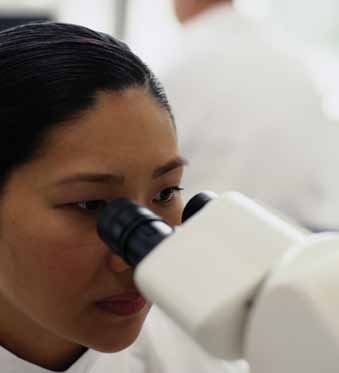Proposals address research, raw food, pharmacies, and more
Research, raw food, and pharmacies along with ethics, diagnostic terms, and animal welfare are among the issues on the agenda for the regular annual session of the AVMA House of Delegates, Aug. 2-3 in San Diego.
The bylaws amendments up for consideration include a measure regarding AVMA liaisons to veterinary students (see story). The resolutions include a measure regarding the veterinarian-client-patient relationship (see story).

As of press time, the following proposals also were on the HOD agenda.
Council on Research
The AVMA Council on Research will have a stated focus of advising the AVMA Executive Board on scientific research and dicovery as well as a responsibility to advise the board on the direction of the American Journal of Veterinary Research, if the HOD approves a proposed change in bylaws submitted by the board. The council and other AVMA entities already advise the Executive Board, but the change would clarify the council’s role regarding AVMA scientific publications.
The change also would give the Council on Research the responsibility for recommending research standards that the AVMA Council on Education could consider using as criteria for accrediting veterinary schools and colleges. The research council would continue activities such as promoting veterinary medical research, improving recognition of research scientists and their work, and identifying partner organizations that could help advance such research.
Principles of ethics
The AVMA Judicial Council recommended revisions to the “Principles of Veterinary Medical Ethics of the AVMA” to update and clarify the document. The board forwarded the recommendation to the HOD as a resolution.
One proposed addition to the document states the following: “Veterinarians who provide emergency services should send patients and continuation of care information back to the original veterinarians and/or other veterinarians of the owners’ choice, as soon as practical.”
Among the other proposed revisions is an addition to address the obligation of veterinarians with supervisory authority to make reasonable efforts to ensure that any veterinarians they supervise conform to the principles of ethics.
Raw food
The AVMA Council on Public Health and Regulatory Veterinary Medicine recommended creating a policy “Raw or Undercooked Animal-Source Protein in Cat and Dog Diets.” The board forwarded the recommendation to the HOD as a resolution.
According to the draft policy: “The AVMA discourages the feeding to cats and dogs of any animal-source protein that has not first been subjected to a process to eliminate pathogens because of the risk of illness to cats and dogs as well as humans.”
The draft policy provides background on raw food in pet diets and recommends precautions to mitigate public health risks.
Diagnostic terms
The Florida VMA submitted a resolution for the AVMA to endorse the implementation of diagnostic terms from the American Animal Hospital Association in veterinary software.
According to the statement about the proposal, standardization of diagnostic nomenclature in companion animal medicine will allow accurate comparisons of disease incidence and outcomes.
“While some veterinary software companies are introducing the AAHA diagnostic terms, it is recommended that it become standard in the industry,” according to the statement.
Nonveterinary pharmacies
The Executive Board submitted a resolution that would call for the AVMA to communicate with nonveterinary pharmacies to promote best practices in dispensing to animal patients.
According to the statement about the proposal: “These pharmacies now fill veterinary drug prescriptions with increasing frequency. The AVMA is concerned about the negative consequences to a pet’s health when prescription medications are inappropriately or inaccurately dispensed by a licensed pharmacist who is not adequately trained in veterinary pharmacology. We want to ensure that licensed pharmacists understand their roles and responsibilities for counseling and educating clients when filling a veterinary prescription. These include verification with the prescribing veterinarian should the pharmacist have any question about the medication or dosage.”
Animal welfare
The board forwarded several recommendations from the AVMA Animal Welfare Committee to the HOD as resolutions.
The AWC recommended revisions to the “AVMA Guidelines for Veterinarians and Veterinary Associations Working with Animal Control and Animal Welfare Organizations.” One of the revisions would encourage veterinarians to contribute their expertise more broadly to animal control and animal welfare organizations, including by promoting current principles of shelter medicine and humane population control.
Another recommendation from the AWC is to revise the policy “Animal Fighting” to more clearly encourage veterinarians to educate the public about the harm caused by animal fighting and to collaborate with law enforcement regarding enforcement of pertinent laws.
The AWC also recommended revising the policy “Physical Restraint of Animals” to add the following line: “Every effort should be made to ensure adequate and ongoing training in animal handling and behavior by all parties involved, so that distress and physical restraint are minimized.”